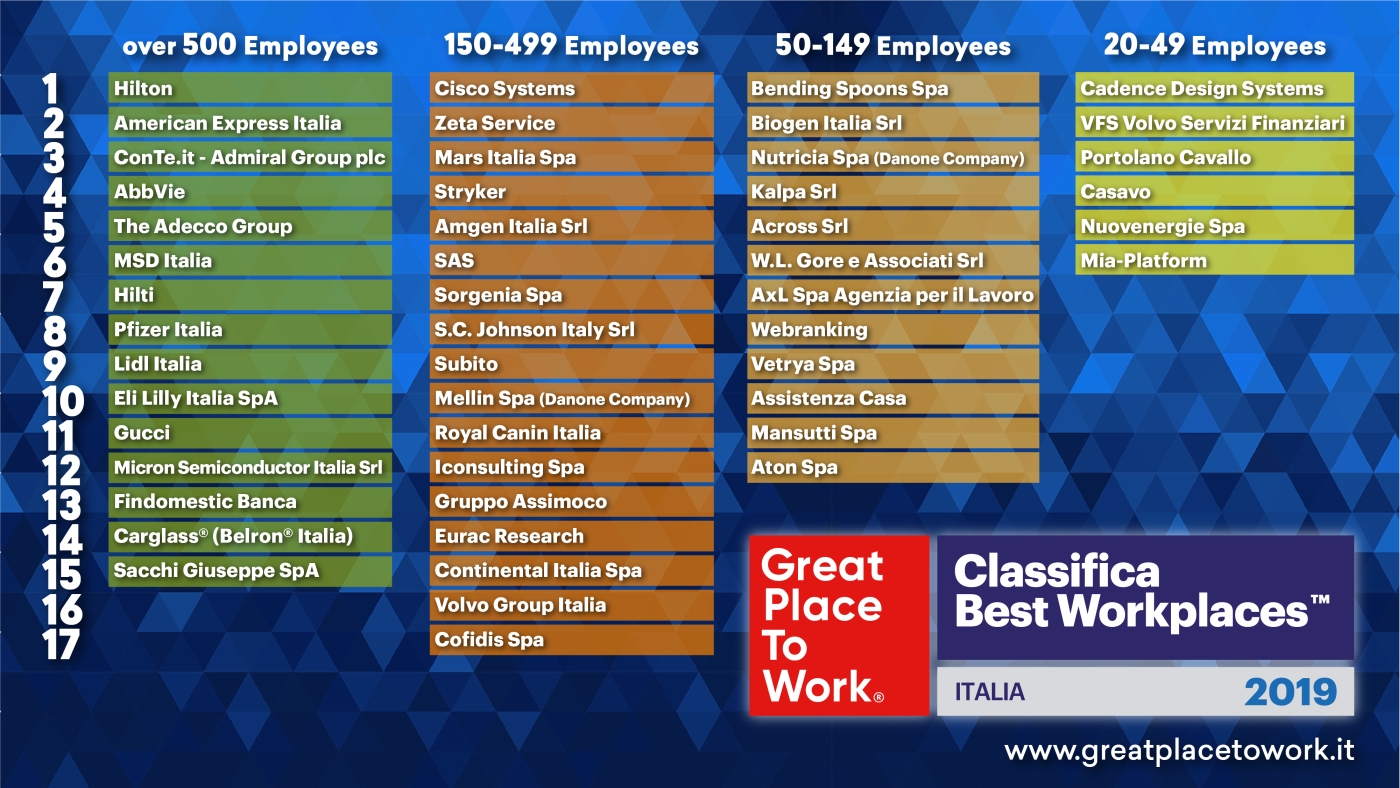
After obtaining the Great Place to Work Certification in December 2018, we have entered the classification of the 50 best companies for which to work in Italy.
On Friday 15th March, at the Great Place To Work (GPTW) Award Ceremony, we have been included among the Best Workplaces Italia 2019, at the 12th position in the classification for companies featuring between 50 and 149 employees.

The classification has been obtained mainly considering associates and employees’ opinions, over 40,000 people from 136 companies, and partly taking into consideration a GPTW analysis on Human Resources management practices. It is in fact the greatest research on companies’ environment in Italy, not only awarding those enterprises which best care for their people’s well-being or provide best practices based on values such as credibility, respect, equity, pride, or confidence, but also offering a vision on HR resources at an international level.
In the 2019 research edition (having reached its 18th issue) we find value aspects such as appreciation of an agile organization, attention to balance between life and work and the double value of flexibility: smart working is in fact at the top, both among the aspects that make a company an excellent place to work and also among those to be improved (if interested to learn about Aton’s experience on smartworking.
And compared to our European neighbours?
The best Italian companies average values (81%) is little far away from the European average (84%): this only proves how similar excellent workplaces are in different countries. Regarding the Happiness ranking, that is, the connection between well-being and happiness rate (education, health, life-expectancy) and trust on companies, we still have some way to go compared to other countries but, in spite of a more difficult social and economic environment, managers from the best Italian companies win over their European colleagues, thanks to a more modern, innovative and inclusive style.
Does all this have an impact on economic growth?
GPTW has no doubts about it: over the years, they have confirmed an outstanding correlation between growth (or decrease) of registered values and the company’s turnover development.
